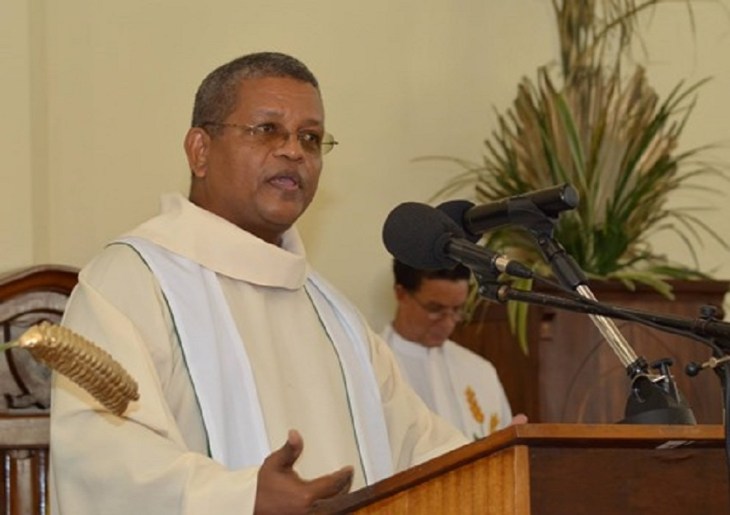By Katherine Igiezele
In a recent critical intervention entitled “Dead Aid”, the Zambian professor Dambisa Moyo argued, amongst other things, that: “the development of China is a ‘golden occasion’ for Africa, offering a ‘win-win’ alternative to the continent.” In place of the current scenario of an ‘aid-dependent economy.’
This ‘win-win’ alternative focuses on trade and investment and provides the infrastructure that will enable Africa to ‘move up the development curve.’
Many financial analysts consider this view as being too optimistic, their reasons are not improbable. A little investigation into the nexus of the aid-governance reveals some unscrupulous behaviour that undermines African’s resource diplomacy.
Ever since policy watchers and researchers became conscious of China’s renewed engagements in Africa, there have been several contributions dealing with the destinations, levels, and implications of Chinese aid.
They raise vital concerns around the significance and novelty of these recent Chinese aids. The levels, nature of conditionality, and the modes of delivery are all issues of concern.
The enhanced role the Chinese government plays in the global economy has deep political implications all over the world. However, China’s role takes a certain form within the African economy.
Indeed, there has been a growing interest in the rise of emerging powers in Africa over the last decade. With resultant researches being carried out on the implications of what this power holds for the status quo regarding issues such as the balance of power, economic prowess, and the influence associated therewith.
In the realm of international development and resource control in Africa, major economies in the world have increased their contributions in form of aids to Africa. These increased aids are in a bid to be perceived favourably in Africa.
Financial experts currently estimate that these aids amount to 10-12% of the global total trade volume with speculation that the number could double in the next five years.
This has brought an increased discussion around the role the Chinese government is playing in Africa as regards resource control.
One may argue that China and other world powers are trying to indirectly influence the sovereignty of African resources to control through contributions in the form of aids.
Furthermore, emerging powers’ contributions of aid have bred interest in how this affects resource diplomacy in Africa, the aid system, and the African countries that benefit from aid.
China’s current aids to Africa are tied to economic cooperation, geopolitical agendas, and specific resource control. The control over these loans is increasingly getting complex and vast due to the fragmentation and privatization of the Chinese state into different regions and ministries.
However, in many senses, most loans, and aid all have an economic and political undertone. Therefore, you can argue that the Chinese aren’t behaving much differently from past industrial powers who were intent on controlling African resources.
Nevertheless, the fundamental difference between the previous aids to African countries and current Chinese loans is the type of political relationship China operates through and envisages for Africa.
At the end of the civil war in Angola in April 2002, accelerated post-conflict rehabilitation became the government’s preference as it began to solicit partners in the global community that could assist this project.
After the war in Angola, many Western donors and the International Monetary Fund (IMF) pressured the country to adopt a staff-monitored program (SMP) that demonstrated a good performance against certain indices as a scale to lend credibility to Angola’s economic policies and usher in a donor conference to raise funds needed for national reconstruction.
The government pulled out of the deal due to the conditionality anyway. And in 2003 the government announced that the IMF was no longer a possibility for financial aid.
As with earlier instances where talks between Angola and the IMF collapsed, prices of resources were remarkably high.
It was in this context that China (requiring new energy resources for its development) sought to provide Angola with series of oil-backed loans with very little conditionality, paying more than lip-service to the need for local resource control and management of these projects.
The Chinese Bank Exim in 2002 provided the initial funding for infrastructural development and a ‘framework agreement’ for new commercial and economic cooperation was officially signed by the Chinese Ministry of Commerce and the Angolan Ministry of Finance in 2003. And in March 2004, the first US$2-billion financial package for public investment projects was approved.
This oil-backed loan guaranteed China a supply of 10,000 barrels of crude oil per day. The loan is payable over 12 years at a deep concessional interest rate, plus a spread of 1.5 percent, with a grace period of just three years and was divided into two phases, with US$1 billion assigned to each.
The loan operates as a current account. When ordered by the Ministry of Finance, disbursements are made by ExIm Bank directly into the accounts of the contractors. Repayment starts as soon as a project is completed. However, this sort of situation is currently changing fast in Africa.
Many African countries who posse a vast amount of natural resources have launched an intensive suit against these major aid providers. The suit seeks to avail these African countries of economic and political independence per the United Nations resolution on permanent sovereignty over natural resources.
These types of suits have a more significant impact when they are a joint action suit. Hence, the Organization of Petroleum Exporting Countries (OPEC) and the Conseil Intergouvernemental de Pays Exportateurs de Cuvier (CIPEC) have both endorsed these suits.
The effects of these suits have resulted in the disruption of the controlling powers many of these old established companies had over African natural resources. Economic and political analysts estimate that system of resource diplomacy in Africa will transit from the current three-phase transitional control system of producing countries, multinational company, and consuming countries to a resource control system where the resources are mainly controlled by the producing country.


